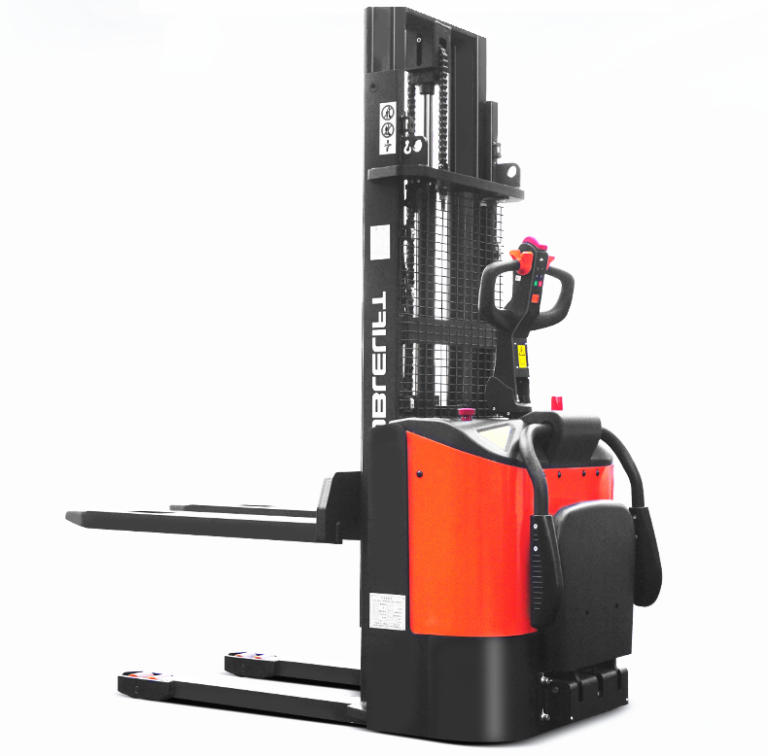The Future of Combustion Fork-Lift Trucks in Modern Industry from buzai232's blog
The Future of Combustion Fork-Lift Trucks in Modern Industry
In the ever-evolving landscape of modern industry, the tools and equipment we rely on must keep pace with technological advancements and environmental considerations. Combustion fork-lift trucks have long been the backbone of material handling operations, known for their power, durability, and versatility. However, as the industry moves towards more sustainable and efficient practices, the future of combustion fork-lift trucks is being redefined. This article explores how these indispensable machines are adapting to meet the demands of the modern industrial environment.
Advances in Engine Technology
One of the most significant developments in the future of combustion fork-lift trucks is the advancement in engine technology. Manufacturers are increasingly focusing on improving fuel efficiency and reducing emissions. Modern combustion engines are equipped with features such as electronic fuel injection (EFI) systems, which optimize the fuel-air mixture for more efficient combustion. Additionally, variable valve timing and turbocharging technologies enhance engine performance while minimizing fuel consumption.
 ForkLift SALE | China price Wholesale Materials Handling stacker truck electric forklifts Sale Buy Online Industrial Equipment | Forklift
ForkLift SALE | China price Wholesale Materials Handling stacker truck electric forklifts Sale Buy Online Industrial Equipment | Forklift
Emission Reduction and Environmental Sustainability
Environmental sustainability is a key driver in the evolution of combustion fork-lift trucks. Stricter emission regulations are prompting manufacturers to adopt cleaner technologies. Diesel particulate filters (DPFs) and selective catalytic reduction (SCR) systems are becoming standard features, effectively reducing harmful emissions such as nitrogen oxides (NOx) and particulate matter. The development of engines that comply with stringent standards like the EPA Tier 4 and EU Stage V regulations ensures that combustion fork-lift trucks contribute to a cleaner and healthier environment.
Alternative Fuels and Hybrid Solutions
The exploration of alternative fuels is another promising avenue for the future of combustion fork-lift trucks. Propane, for example, is a cleaner-burning fuel compared to diesel and gasoline, producing fewer emissions and reducing the carbon footprint. Biofuels, derived from renewable sources, are also being integrated into combustion engines, offering a sustainable alternative to traditional fossil fuels.
Hybrid technology is making significant strides in the material handling industry. Hybrid combustion fork-lift trucks combine the power of an internal combustion engine with the efficiency of an electric motor. This hybrid configuration allows for seamless transitions between power sources, optimizing fuel efficiency and reducing emissions. The integration of regenerative braking systems further enhances energy efficiency by capturing and storing energy during braking, which can be used to power the electric motor.
Connectivity and Smart Technologies
The future of combustion fork-lift trucks is also being shaped by the integration of connectivity and smart technologies. Telematics systems are becoming increasingly common, providing real-time data on vehicle performance, fuel consumption, and maintenance needs. This connectivity allows fleet managers to monitor and optimize the operation of their combustion fork-lift trucks, reducing downtime and improving overall efficiency.
Advanced driver assistance systems (ADAS) are being introduced to enhance safety and productivity. Features such as collision detection, lane-keeping assistance, and automated braking systems are designed to prevent accidents and protect operators. The incorporation of smart technologies ensures that combustion fork-lift trucks remain competitive in an industry that increasingly prioritizes safety and efficiency.
Ergonomics and Operator Comfort
As the industry evolves, so does the focus on operator comfort and ergonomics. Modern combustion fork-lift trucks are designed with operator well-being in mind, featuring adjustable seats, intuitive controls, and spacious cabins. Reduced noise levels and improved visibility contribute to a more comfortable and productive working environment. By prioritizing operator comfort, manufacturers are ensuring that combustion fork-lift trucks can meet the demands of long shifts and challenging tasks.
Conclusion
The future of combustion fork-lift trucks in modern industry is bright, driven by advancements in technology, environmental considerations, and a focus on efficiency and sustainability. By embracing innovations in engine technology, emission reduction, alternative fuels, and smart connectivity, these machines are evolving to meet the changing needs of the industrial landscape. As the backbone of material handling operations, combustion fork-lift trucks will continue to play a crucial role in ensuring productivity and reliability while paving the way for a more sustainable future. Embrace the evolution of these powerful workhorses and discover how they can elevate your industrial operations to new heights.
Post
| By | buzai232 |
| Added | Oct 21 '24, 06:48PM |
Rate
Archives
- All
- December 2017
- November 2017
- October 2017
- September 2017
- June 2017
- May 2017
- December 2018
- November 2018
- October 2018
- September 2018
- August 2018
- July 2018
- June 2018
- May 2018
- April 2018
- March 2018
- January 2018
- December 2019
- November 2019
- October 2019
- September 2019
- August 2019
- July 2019
- June 2019
- May 2019
- April 2019
- March 2019
- January 2019
- December 2020
- November 2020
- October 2020
- September 2020
- August 2020
- July 2020
- June 2020
- May 2020
- April 2020
- March 2020
- January 2020
- December 2021
- November 2021
- October 2021
- September 2021
- August 2021
- July 2021
- June 2021
- May 2021
- April 2021
- March 2021
- February 2021
- January 2021
- December 2022
- November 2022
- October 2022
- September 2022
- August 2022
- July 2022
- June 2022
- May 2022
- April 2022
- March 2022
- February 2022
- January 2022
- December 2023
- November 2023
- October 2023
- September 2023
- August 2023
- July 2023
- June 2023
- May 2023
- April 2023
- March 2023
- February 2023
- January 2023
- December 2024
- November 2024
- October 2024
- September 2024
- April 2024
- March 2025
- February 2025
- January 2025
The Wall